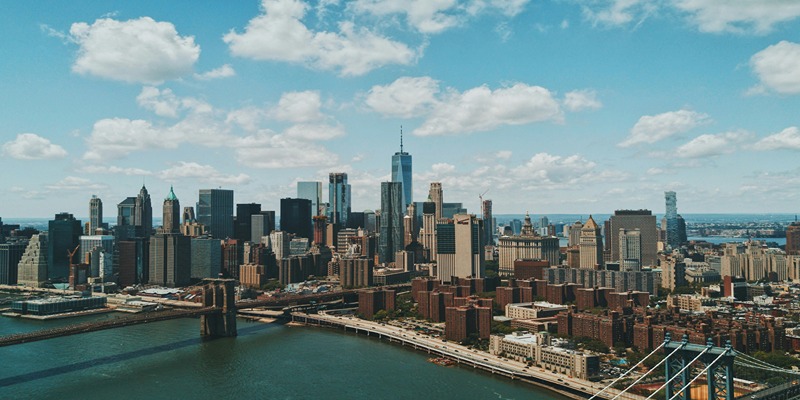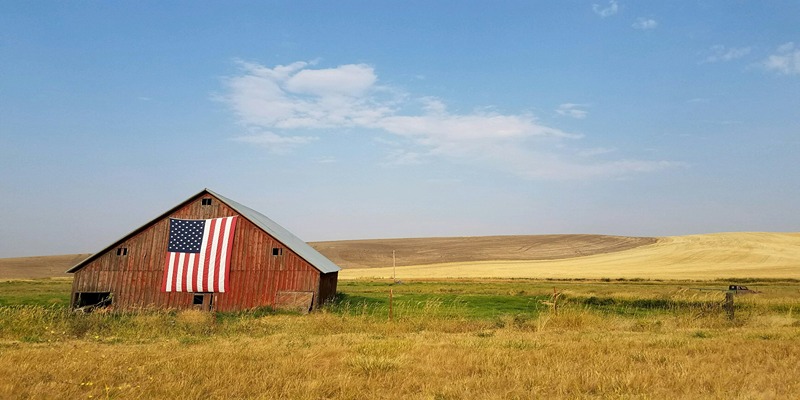Celebrating American Culture: Key Festivals Reflecting National Heritage
Feb 22, 2024 By Juliana Daniel
Advertisement
Cultural festivals contribute significantly to the social fabric of America as they provide a colorful platform for diversity and heritage. These events provide an opportunity for communities to unite and celebrate their cultural differences, norms, beliefs as well as practices. Cultural festivals ranging from colorful ethnic parades to rhythmic music and dance performances promote a feeling of unity among participants as well as spectators. Through these festivals, ancestral traditions are honored and preserved; thus adding to the mosaic of American culture that fosters understanding, appreciation and respect for those from different backgrounds.

Heritage Festivals Across the USA
Ethnic Festivals: Preserving Ancestral Traditions
Ethnic festivals held throughout the United States allow communities to celebrate and display their ancestral heritage. These festivals have a vibrant cultural heritage ranging from traditional music, dance, food and crafts. Ethnic festivals range from the colorful Holi celebrations in India to the beat of the African diaspora, where ethnicity is celebrated and Americans feel proud of their roots.
Regional Festivals: Showcasing Local Heritage
Regional festivals are a proof of the diversification in landscapes and history that makes up America. The New England Maple Festival and the Texas State Fair are just a few examples of such events that showcase regional culture. Guests will also have an opportunity to taste local food, listen to music, view art and familiarize themselves with the unique characteristics of each region. Regional festivals do not only represent local pride but also act as significant cultural beacons, unifying people and preserving beloved customs.
Historical Festivals: Commemorating American History
Historical festivals allow us to celebrate important events in American history and pay tribute to the achievements of our ancestors. Celebrations such as Independence Day, Civil War reenactments and Native American powwows reveal the intricate history of our nation. Historical festivals provide educational exhibits, live performances and interactive activities that allow attendees to experience America’s past in a meaningful way by recognizing the hardships as well as triumphs of this country.
The Vibrant Tapestry of American Traditions
Music and Dance: Rhythms of Diversity
The American cultural festivals are incomplete without music and dance, which is a clear indication of the rich diversity that characterizes this nation. The rhythms of diversity echo in these celebrations from the soulful tunes sung by gospel choirs to the vibrant beats produced when Latin salsa is danced. The audience can enjoy various musical genres and dancing styles that reflect different cultural heritage. By means of performances, workshops and interactive sessions participants are able to dive into the colorful mosaic that is American music and dance; a testament to unity in diversity.
Culinary Delights: Tasting America's Flavors
American cultural festivals are a place where culinary delights take the center stage, providing visitors with an enchanting ride across the rich palette of flavors that characterize this country. Each region has its own specialties in cooking from Southern barbecue to New England clam chowder, America’s rich culinary heritage is evident. Visitors can taste different dishes, enjoy sweets and learn about the traditional methods of cooking that have been passed down from generation to generation. Culinary exhibitions and food samplings offer a mouthwatering chance to enjoy the distinct tastes and aromas that characterize American cuisine.
Arts and Crafts: Celebrating Creativity
Arts and crafts are an important aspect of American cultural festivals that demonstrate the creative skills in handicrafts by local artisans. The festival-goers get to appreciate a variety of artistic expressions from handicrafts such as jewelry and intricate pottery. Workshops and demonstrations give attendants the opportunity to learn traditional skills, as well as produce their own masterpieces. In artisan markets, people can buy unique souvenirs and support local artists hence promoting a sense of community as well as appreciation for handmade craftsmanship. American cultural festivals celebrate creativity, innovation and encourage the preservation of artistic traditions that enrich America’s landscape.

The Essence of Community and Connection
Family-Friendly Atmosphere: Building Bonds
American cultural festivals create a hospitable and accommodating environment that encourages families to bond as well as communities. These events offer activities for everyone and allow families to spend time together, unite around a common goal, and create memories that will last forever. Cultural festivals are not limited to children’s games and performances; they also include family-friendly workshops, exhibits etc. for everyone’s delight. The spirit of the festive season is characterized with laughter, happiness and unity which help develop family ties as well foster a sense of belonging within the society.
Community Engagement: Fostering Unity
American cultural festivals thrive on community engagement as the basis for collaboration, cooperation and unity. Such events attract people from diverse backgrounds, neighborhoods and interests; creating a sense of unity among them. Festival participants can actively participate in the success of such an event through volunteer opportunities, community outreach programs and collaborative projects. Participants develop connections, trust and cohesion in their communities by working together towards common goals.
Cultural Exchange: Embracing Differences
There are cultural festivals that take place in America and they offer a stage for dialogue where people get to embrace their differences. By means of performances, exhibitions and interactive activities people can learn about diverse cultures as well as appreciate their traditions and worldview. Meaningful conversations, storytelling and cultural activities help people to understand each other better, respect one another as well as feel empathy towards others. Cultural festivals foster diversity and intercultural exchange, which create a harmonious society where everyone is respected.
Impact and Significance of Cultural Festivals
Local economy is highly dependent on cultural festivals that bring in revenue and help small businesses. Food vendors, artisans and even local hotels and transportation service providers have opportunities to display their products or services in front of a variety of people. The arrival of tourists triggers expenditure on lodging, food, shopping and recreation which is a major source of revenue to businesses in the area. Further, cultural festivals draw visitors from other regions and this increases tourism revenues as well as economic growth.
Cultural festivals are a vital part of keeping and passing traditions to future generations. Through the display of traditional music, dance, food and artifacts these events serve to protect cultural heritage from possible assimilation or extinction. By means of intergenerational exchanges and educational programs, festival participants can learn about their cultural heritage and ancestral practices which guarantees that traditions are observed. Cultural festivals act as living archives of cultural knowledge and practices which promote a sense of pride, identity and continuity in the preservation culture for generations to come.
Conclusion
As vibrant manifestations of diversity, unity and tradition American cultural festivals play a great role in the life of citizens. Such occasions are priceless avenues for the nation’s diverse cultures to be celebrated, communities linked up and understood; therefore appreciated. Through cultural exchange, heritage preservation and economic vitality promotion, the role of cultural festivals in creating American society is indispensable. As we go on to celebrate our differences and commonalities through these festivals, we affirm the principles of inclusivity, unity and cultural heritage in America.
Advertisement
-
![]() Travel Tips
Travel TipsBalangan Beach, Uluwatu: Everything You Need to Know
Juliana Daniel Dec 10, 2023
-
![]() Attractions
Attractions8 Breathtaking Beaches in Sri Lanka for Your 2024 Getaway
Sean William Feb 25, 2024
-
![]() Attractions
AttractionsExplore Kashmir's Stunning Scenery and Hidden Gems
Juliana Daniel Jan 10, 2024
-
![]() Guides
GuidesExploring Portugal's Stunning Islands: A World Apart
Juliana Daniel Feb 20, 2024
-
![]() Attractions
Attractions6 of Chennai's Charms - A Journey Through Culture and Tranquility
Juliana Daniel Jan 21, 2024
-
![]() Attractions
AttractionsUnforgettable Kerala: Top Tourist Places for Ayurveda, Backwaters, and Cultural Delights
Sean William Dec 29, 2023
-
![]() Destinations
DestinationsKnow AboutAtmantan Wellness Resort, Mulshi
Juliana Daniel Nov 12, 2023
-
![]() Attractions
AttractionsSpectacular Road Trips from Mumbai to Celebrate Diwali
Juliana Daniel Feb 05, 2024







